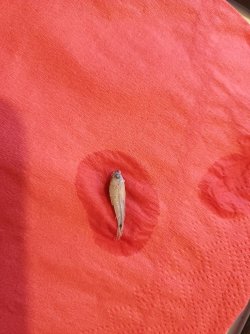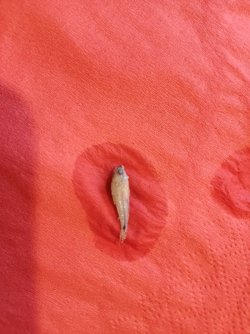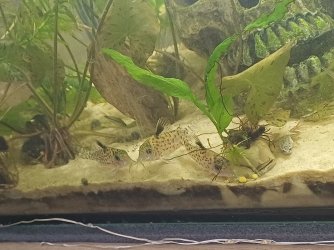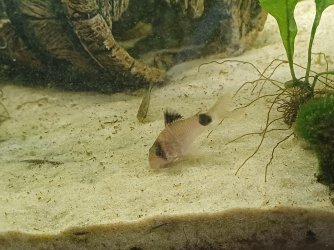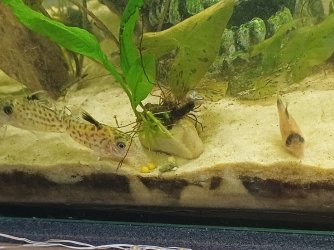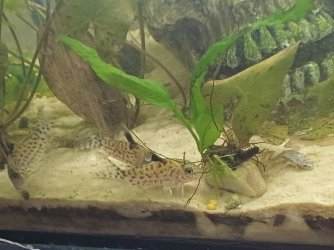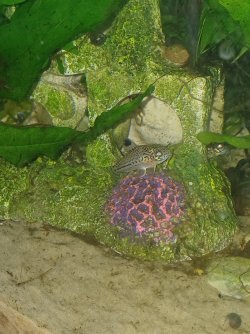I hate going nuts in a tank when I am not at all certain there is a need, All of the things Colin suggested may be needed sometimes. But without any clear evidence that there is a problem, I consider all the fussing to be stressful for the fish. Stress opens fish to disease. This is especially true when everything is somewhat new.
I find that the fish in a newly stocked tank need some time to adjust to all the travel it took to get there and then the new surroundings and tank-mates exacerbates this. Mt experience has been that the first few months of water changes and maint. I do in a tank freaks out the fish a lot more than when they have experienced this for a number of times. I have had SAEs try to eat what they though was hair algae off of the back of my hand s and foerarms. i hhave had to shoo discus out of my way to do something in their tank.
Don't get me wrong here. The fish still tend to scatter when they catch unexpected movement in the tank or above the water. They are hard wired to do this. If a wish waits around to determining if that movement represents danger, it may get the answer from inside the stomach of something bigger and hungrier.
No matter how conscientious we are about maint. and water changes, none of us is perfect. Sooner or later we make a mistake. This is especially true for those with many tanks. I turn off or otherwise stop filter flow when working in tanks. Most tanks have multiple filters and sometime I forget to get one going again. I may be pressed for time and forget to add ferts to a planted tank. I have well water so I do not dechlor, but I am sure that is a step all keepers may forget every now an then.
I would hate to think I am causing harm by being overly zealous about water changes etc. Plus I am a bit lazy. So my first reaction is not to do a whole lot of work I may not need to do. One fish passing away may or may not indicate a problem. If the cory here died from something contagious, I would expect that other fish would shows symptoms. Spotting one ill cory may be hard, noticing a few fish in trouble is easier.
It is important for us to get to know our tanks and the inhabitants. If we know what is "normal" behavior for our fish, we should be pretty quick to spot issues. So it is important to check all out tanks daily. if nothing else when we feed we can take a couple o more minutes to watch the fish for a bit. When we get to know what is normal, it becomes a whole lot easier the notice something not normal.
For example, I started with zebra plecos when i started to breed fish seriously. There is a saying which every zebra owner learns sooner or later, "a happy zebra is a hiding zebra." So, if I spot one sitting out in the open in the middle of the day, I know something must be wrong. The is especiially true if it fails to bold for cover as I try to see what us up. I also know that most fish,m when ill, tend to hide. So fish I normally expect to see out and about but do not, my alert level goes up.
As always, this is just y way of doing things. it doesn't mean it is the only or even the best way. It is what I have found works well for me. In the case here I could argue doing things my way is the best option or that what Colin suggest is actually the better choice. My feeling is this situation is not yet indicating dire things to come if nothing is done. There are diseases which can kill pretty fast, before any symptoms are evident. So the OP has to do what they feel is the best course of action. I just wanted to offer another point of view to consider.
Welcome to the uncertainties of keeping fish. Almost none of us have the experience, training or diagnostic tools to be close to experts in this part of keeping fish. I certainly am not.

